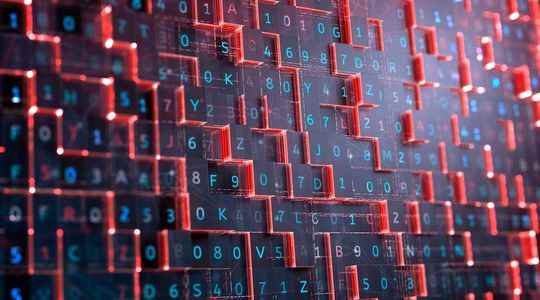Let’s talk a bit about blockchain. This technology, whose name is traditionally associated with digital uses, stores information and transactions in encrypted form, and secures them in distributed, tamper-proof computer ledgers. These data exchanges take place directly between peers, without the need to resort to an intermediary slowing them down and adding a transaction cost… With the blockchain, the trusted third party becomes the system itself! The blockchain has been associated since its origin with bitcoin and, undoubtedly unfavorably for its image with the general public, with the computer complexity, its energy consumption and its the apparent irrationality of the cryptocurrency market. But it is far from being used only for the validation of bitcoins!
Some examples. “DeFi” start-ups, specializing in financial decentralization, are already using it, for example to reduce the time of cross-border money transfers, to reimburse air users in certain cases of delay or to check more simply customer identities. Logisticians and major distributors like Carrefour too, in order to ensure product traceability. Applications have also been imagined in the food industry to identify and very quickly stop health problems. Little by little, the blockchain is making its way into businesses and industries, and not just in the financial field.
And in the field of energy? Blockchain should play a major role in this, complementing the collection of tons of information on production, distribution and consumption (thanks to connected measurement equipment such as smart meters) with a new capacity for direct peer-to-peer exchange. Several experiments are underway in Europe, the United States and Australia.
Trace energy
Concretely, the blockchain can allow a customer to reliably trace the origin of the energy he consumes, especially if he wants to be sure that his electricity or fuel does indeed come from a renewable source. This is not done from global estimates but precisely, day by day, from the place of production to the place of consumption. While major manufacturers are making commitments to reduce their environmental footprint vis-à-vis their customers and shareholders, the blockchain provides in this case a guarantee of origin which makes it possible to automatically prove the achievement of CO² emission reduction targets. Given the competition in decarbonization announcements, the quality of this proof, now crucial to give credibility to the commitments made vis-à-vis customers and shareholders, can thus improve considerably.
It is even possible to set up, since the blockchain allows it – via smart contracts – the automatic execution of payment actions in return for a delivery, a direct and immediate remuneration of the producer, or even a resale of surplus credits. . These experiments encourage a more decentralized organization of electricity networks, like a pioneering experiment in solar electricity in New York where small units are interconnected within a local network via a collaborative blockchain between producers and consumers.
But, several years after the start of experiments and while a “national blockchain strategy” has been launched since 2019 in France, blockchain is still emerging in the electricity sector. Admittedly, many questions, technological but above all regulatory, such as its insertion into a centralized system, remain to be resolved. The challenge of the industrialization of the blockchain is however considerable. While the major industrial transformations undertaken in favor of the energy transition – electric vehicles, hydrogen, CO² capture, etc. – will take time, the blockchain could considerably simplify the producer-consumer relationship. More broadly, there is an opportunity here to develop new French and European decentralized IT architectures before other solutions are imposed; stimulate the industrial sector of connected objects; to create an ecosystem of businesses, new services and jobs.
French energy companies are known worldwide for their excellence and proactive approach to energy transition. France must therefore not fail to be a driving force in the creation of the “energy Internet” of the 21st century.
